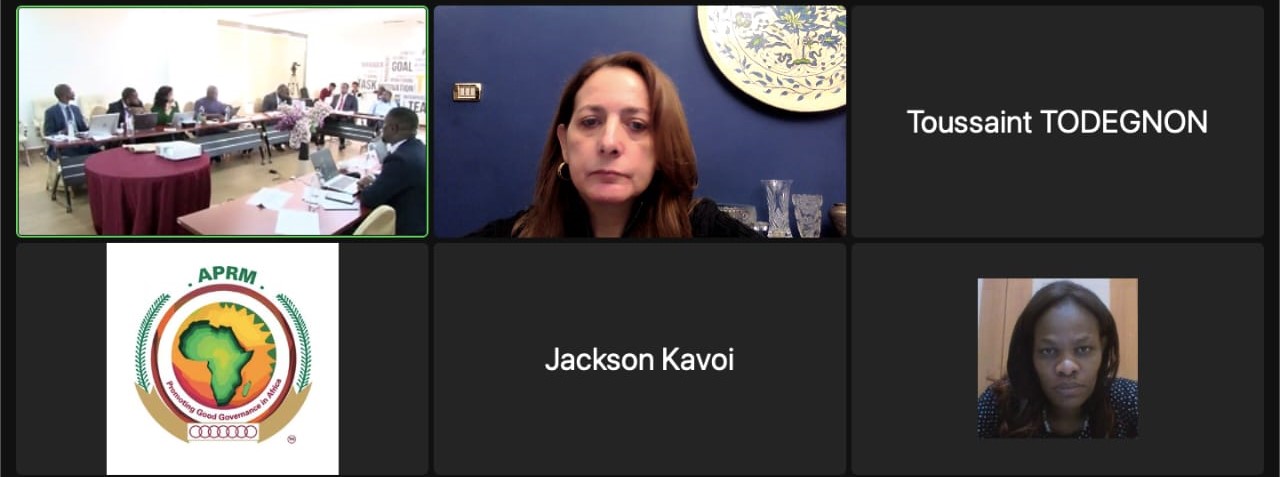NIGSD Executive Director participates in the APRM on Africa's Agenda 2063.

01 December 2022
Dr. Sherifa Sharif, Executive Director of the National Institute of Governance and Sustainable Development (NIGSD), participated - via video conference - in the technical meeting of the African Peer Review Mechanism (APRM) to discuss sustainable development goals, Africa's Agenda 2063, and the progress report on SDG 16 (Peace, justice and strong institutions).During her speech, Dr. Sherifa Sharif emphasized the role of effective, accountable, and inclusive institutions at all levels in achieving sustainable development goals. She noted that SDG 16 comes as an enabler and accelerator for all other sustainable development initiatives, promoting just, peaceful and inclusive societies and providing access to justice. For everyone.Sherif explained that governance is crucial because it acts as a monitoring tool. In addition, it sets rules and principles for managing and monitoring organizations and institutions. These rules and principles offer justice and transparency, ensuring the right to accountability and distributing roles and responsibilities through specific organizational structures.Dr. Sherifa Sherif reviewed many practices carried out by NIGSD, which positively affected the speed of progress in governance, especially SDG 16 in Egypt. She referred to the evaluation of Egypt's performance and its efforts toward governance.Sherif emphasized that improving Egypt's position on governance indicators is one of the Institute's most critical priorities. To achieve this, Egypt's current situation and its growth in various governance and competitiveness indicators are being tracked and analyzed.Sherif added that the institute monitors, reviews, and prepares reports on various governance indicators at the national and international levels. This is done by issuing annual reports to follow up on Egypt's governance and international indicators’ performance.Sherif noted that the second key factor for building effective, accountable, and inclusive institutions at all levels is to adopt an integrated approach, involving all relevant stakeholders.Sherif said that the first guide and dictionary in Arabic, English, and French were launched for key terms and definitions related to governance. This was intended to provide all interested parties with clear, specific, and unified definitions of commonly used terms and concepts in the field of governance.Sherif added that among the institute's efforts to implement the principles and standards of governance to build stronger institutions is to develop a citizen's charter to improve the quality of services provided to citizens by supporting monitoring, follow-up, evaluation, and data availability systems. Sherif stressed that the Citizen Charter comes within the framework of Goal 16 of the Sustainable Development Goals to ensure the provision of effective services to citizens.She also referred to the launch of the Code of Conduct and Ethics of the Public Service (2019-2022) to support building a culture of integrity, accountability, efficiency, and effectiveness in the civil service.Sherif drew attention to NIGSD's Governance Observatory as the first specialized center in governance in Egypt that aims to promote the principles of good governance in line with the National Anti-Corruption Strategy and Vision 2030.Dr. Sharifa Sherif also reviewed NIGSD’s role in investing in human capital to achieve Goal 16 of the Sustainable Development Goals, noting that since 2018 the institute has provided more than 62 gender-balanced training programs and projects, and trained more than 45,000 people across Egypt and Africa.









